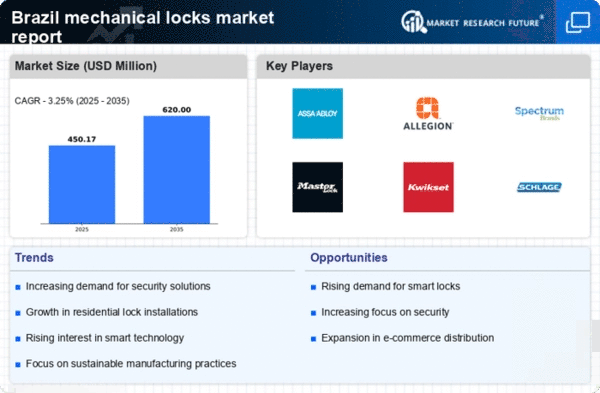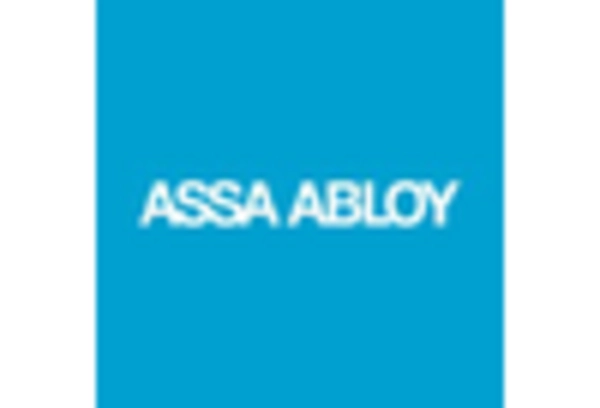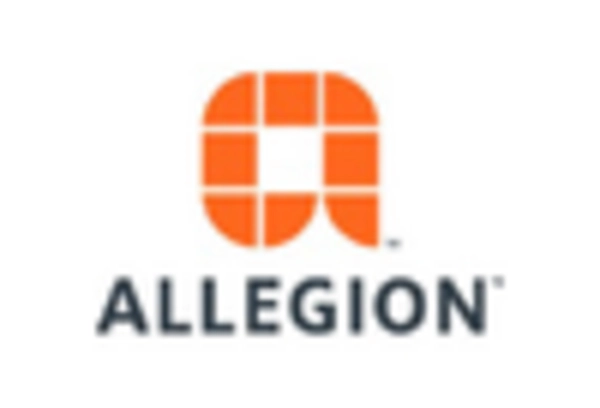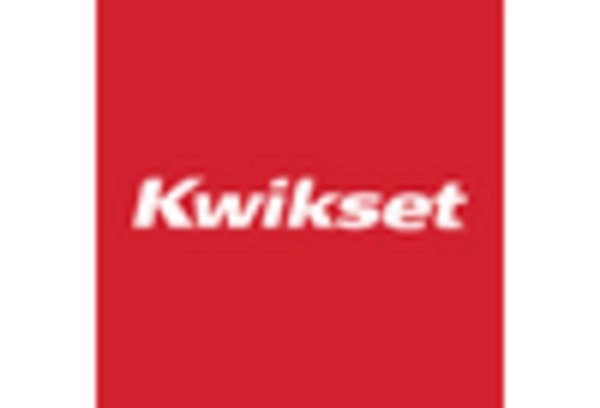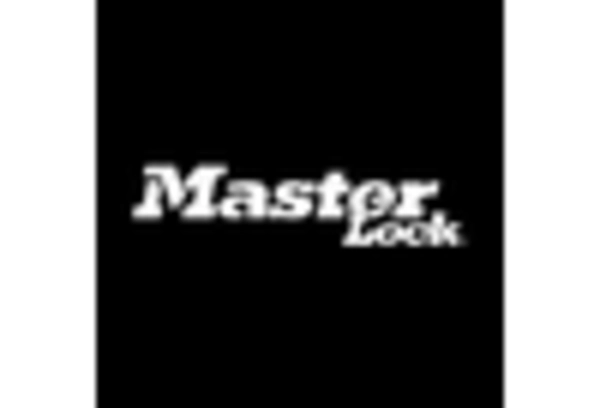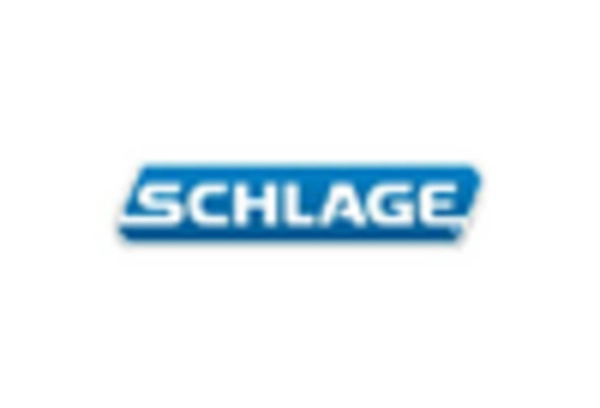Rising Crime Rates
the mechanical locks market is experiencing growth due to rising crime rates, which have heightened the demand for robust security solutions. As urban areas face increasing incidents of theft and burglary, consumers and businesses are prioritizing security measures. This trend is reflected in the market data, indicating a projected growth rate of approximately 6.5% annually over the next five years. The heightened awareness of personal and property safety is driving investments in mechanical locks, as they are perceived as reliable deterrents against criminal activities. Consequently, manufacturers are focusing on enhancing the durability and effectiveness of their products to meet the evolving needs of consumers. This driver underscores the critical role that security plays in shaping the mechanical locks market, as stakeholders seek to provide solutions that address the pressing concerns of safety and protection.
Regulatory Compliance
Regulatory compliance is emerging as a crucial driver for the mechanical locks market. The government has implemented stringent regulations regarding security standards for residential and commercial properties, necessitating the use of high-quality locking systems. This regulatory landscape compels manufacturers to ensure that their products meet specific safety and security criteria, thereby enhancing the overall quality of mechanical locks available in the market. As a result, companies that prioritize compliance are likely to gain a competitive edge, as consumers increasingly seek products that adhere to these standards. Market analysis indicates that compliance-driven demand could contribute to a 5% growth in the mechanical locks market over the next few years. This driver highlights the importance of regulatory frameworks in shaping product offerings and consumer choices within the mechanical locks market, as stakeholders navigate the complexities of compliance while striving to meet consumer expectations.
Technological Advancements
Technological advancements are significantly influencing the mechanical locks market. Innovations in lock design and manufacturing processes are leading to the development of more sophisticated locking mechanisms. For instance, the integration of advanced materials and precision engineering has resulted in locks that offer enhanced security features while maintaining ease of use. Market data suggests that the adoption of these technologies could lead to a 7% increase in market value over the next few years. Additionally, the introduction of smart features, such as keyless entry systems, is gradually merging with traditional mechanical locks, appealing to a broader consumer base. This trend indicates a shift towards more versatile locking solutions, as consumers seek products that combine traditional reliability with modern convenience. The mechanical locks market is thus positioned to benefit from these technological innovations, which are likely to redefine consumer expectations and preferences.
Consumer Awareness and Education
Consumer awareness and education are playing a pivotal role in shaping the mechanical locks market. As individuals become more informed about security options, they are increasingly seeking out high-quality locking systems that offer superior protection. This heightened awareness is fostering a more discerning consumer base that prioritizes security features and reliability in their purchasing decisions. Market data suggests that consumer education initiatives could lead to a 4% increase in market demand for mechanical locks over the next few years. Manufacturers and retailers are responding by providing detailed information about product specifications, benefits, and installation processes, thereby empowering consumers to make informed choices. This driver underscores the importance of consumer engagement in the mechanical locks market, as stakeholders strive to meet the evolving expectations of a more knowledgeable customer base.
Increased Construction Activities
the mechanical locks market is benefiting from increased construction activities across various sectors, including residential, commercial, and industrial. As urbanization continues to expand, the demand for new buildings and infrastructure projects is rising, leading to a corresponding need for effective security solutions. Market data indicates that the construction sector is projected to grow by approximately 8% annually, which directly impacts the demand for mechanical locks. Builders and developers are increasingly incorporating advanced locking systems into their projects to enhance security features, thereby driving sales in the mechanical locks market. This trend suggests that the growth of the construction industry is closely linked to the performance of the mechanical locks market, as stakeholders seek to provide comprehensive security solutions that align with modern building standards and consumer expectations.


